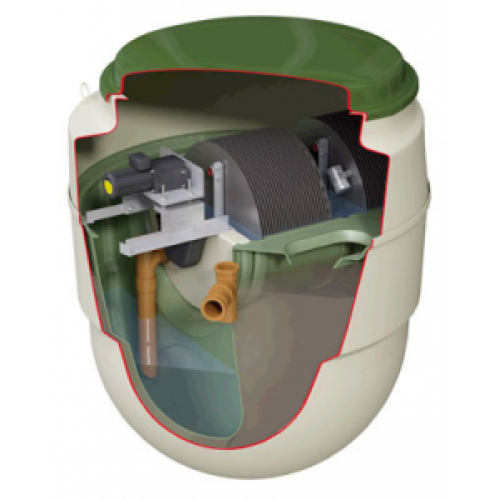Clock ticking for property owners as septic tank deadline looms

Thousands of home owners and businesses across Devon and Cornwall risk falling foul of pollution protection regulations if they fail to upgrade their sewage processing systems.
Drainage specialist Lanes Group, based in Plymouth, says regulations enforced by the Environment Agency (EA) set January 1 2020 as the deadline for properties to change or upgrade septic tanks.
Also, any owner of a property with a septic tank must now upgrade their wastewater treatment facilities to meet the new standard before selling it, a fact that some property surveyors are not aware of.
The regulations, called General binding rules: small sewage discharge to a surface water, no longer allows water from a standard septic tank to be discharged directly into water courses.
When the regulations came out in 2015, the EA gave time for home owners and businesses to upgrade their septic tanks. But this period of grace runs out at the start of 2020.
Lisa Andrews, Regional Manager of Lanes Group’s Plymouth depot, said: “Because Devon and Cornwall is so rural, with many isolated villages and hamlets located on rivers and creeks, there will be hundreds, if not thousands, of properties with septic tanks that discharge into water courses.
“The owners of all these properties will have to upgrade or change their septic tanks by January 1 2020. If they don’t, they risk being fined by the EA. If the EA can prove that a septic tank has caused a serious pollution incident, the fines could be very serious indeed.
“The Environmental Agency is now working with river trusts to research and identify water courses most at risk from wastewater outfalls from septic tanks, so pressure will be mounting on property owners in months to come.”
Until the new regulations came into force, properties with offline sewage systems – ones that were not connected with the mains sewer system – could discharge waste water from a septic tank in two ways.
The water could be allowed to soak away into a drainage field. This is a large area of ground, at least 30 metres from a water courses, that the waste water slowly seep through to allow bacteria in the soil time to neutralise the effluent.
Also, the effluent could be discharged directly into a water course, via a sealed pipe. It is this second option that is no longer allowed, because the waste water from a standard septic tank does not meet latest EA quality standards.
There are several options open to property owners who need to upgrade their waste water treatment systems.
They can replace the septic tank with a small sewage treatment plant. This has a bio disc or an aeration system that enhances the bacteriological processing of the effluent.
Or, a secondary sewage treatment unit can be added to the septic tank. In most cases, this would be an ultra-violet filter, which kills the bacteria before it is discharged to a water course.
Treatment systems must meet the British Standard in force at the time of installation. Standards currently in force for new systems are: BS EN 12566 for small sewage treatment plants; and BS 6297:2007 for drainage fields.
Wayne Clemens said: “Lanes Group has a septic tank and sewage treatment plant installation service. Anyone who has a septic tank and is not sure if they need to make changes to comply with the regulations can contact us.
“We would be happy to visit their property and give an assessment, free of charge, of what options they have to ensure they comply fully with EA regulations. Putting in place measures now will be much less costly than facing hefty pollution fines after January 2020.”







